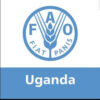Tasks and responsibilities
Within the framework of the Emergency Centre for Transboundary Animal Disease programme (ECTAD), the overall policy and technical guidance of the Senior Animal Health Officer/ECTAD Global Programme Coordinator, in line with the programme management guidance from the Emergency and Rehabilitation Officer/ECTAD Global Programme Budget Holder (OER), the functional and administrative supervision of the FAO Representative in Uganda, the direct supervision of the ECTAD Country Team Leader in Uganda, the technical guidance of Regional Epidemiologist for ECTAD Eastern and Southern Africa and the Regional Epidemiology training coordinator for ECTAD Eastern and Southern Africa, and in close collaboration with the FAO Programme, the National Epidemiologist will undertake the following duties and responsibilities:
• Contribute to the preparation of country strategies and programmes for the management of high-impact emerging and re-emerging zoonotic and non-zoonotic disease in line with the national priorities and FAO’s Strategic Objectives
• Participate in and support the design and implementation of national strategies and programmes/projects following EMPRES/ECTAD/EMC strategies, in line with the FAO/ WOAH Global Framework for the Progressive Control of TADs and Regional priorities.
• Support the design, coordination, and implementation of surveillance activities relevant to emerging and re-emerging zoonotic and non-zoonotic diseases at the livestock-wildlife-human interface to mitigate the high (current/potential) impact of diseases in Uganda.
These include:
– Supporting appropriate stakeholder workshops and facilitate discussion and development of a surveillance approach and one health systems that addresses national and regional priority diseases to target through a surveillance programme,
– Support the drafting of a concept note, LoA, preparation and implementation of national surveillance plans for Priority Zoonotic Diseases (PZDs) and antimicrobial resistance (AMR) in livestock,
– Contribute to development and the implementation of surveillance protocols (epidemiological sampling) from livestock in targeted livestock farming systems, value chains and at domestic animals-wildlife interfaces,
– Plan, organize and implement capacity development of in-service professionals through the use of field epidemiology training and participatory epidemiology approaches targeting veterinarians, animal health technicians, community animal health workers, farmers, and where appropriate, public health or other private sector stakeholders/partners,
– Conduct risk assessments at the human/livestock/wildlife interface and supervise in-country expert missions on epidemio-surveillance to ensure that high quality samples are collected.
• Support the development and implementation of workforce development strategy in collaboration with key partners at national level,
• Support ECTAD capacity development activities including delivery of In-service courses including use and application of virtual platforms,
• Support the preparation and consultations of the national In-Service Applied Veterinary Epidemiology Training (ISAVET) strategic plan, based on the conclusion of the regional ISAVET workshop.
• Support in designing/updating the core curriculum and contents of the ISAVET trainings at country level and FEPT-V (Toolkit) in collaboration with the relevant stakeholders responsible of the development of Field Epidemiology,
• Conduct field assessment missions to identify challenges, gaps, needs and level of preparation for the implementation of ISAVET at sub national level,
• In close consultation with relevant sectors and stakeholders, initiate the adoption and roll-out of In-service Applied Veterinary Epidemiology Training (ISAVET) programme as an entry point to strengthen the animal health workforce at the sub-national levels,
• Support the implementation of ISAVET country training programme,
These include:
– Support ISAVET national coordinator/Focal person to develop, implement and monitor national ISAVET implementation plans in collaboration with relevant partners,
– Support the planning and delivering of ISAVET in-country trainings and post-training evaluations and mentorships,
– In collaboration with the national ISAVET coordinator, support facilitation and networking of ISAVET networks
• Organize stakeholders’ meetings and lead the process for the development of animal health and related policy instruments in Uganda,
• In close consultation with relevant sectors and stakeholders, initiate a national zoonotic disease control program to serve as an entry point for a functional intersectoral One Health collaboration,
• Facilitate closer linkages of the GHSP program with relevant government ministries, private sector, and other technical partners,
• Provide regular updates of TADs epidemiology situation in the country, bi-weekly project activity updates, and prepare draft web articles on technical accomplishments as needed,
• Establish a functional national epidemiology and laboratory network,
• Participate in animal health emergency preparedness, and contingency planning exercises, or simulation exercises,
• Assist in the organization of planned training workshops, simulation exercise, and technical meetings,
• Provide immediate notification to GLEWS and the Country Team Leader, of any significant epidemiological events,
• Contribute to epidemiological intelligence at National levels,
• Contribute to the preparation of regular reports on the progress of the implementation of projects implemented by the ECTAD Uganda, for FAO, donors, or other stakeholders,
• Support resource mobilization actions that target attainment of FAO Country Programming Framework (CPF) objectives for Uganda,
• Submit a final technical report upon completion of the assignment to the ECTAD Uganda Team Leader and the FAOR,
• Perform other related duties as required.
CANDIDATES WILL BE ASSESSED AGAINST THE FOLLOWING
Minimum Requirements
• Advanced University Degree in Veterinary Medicine, Postgraduate training in epidemiology and relevant qualifications
• At least five years of in-country work experience in control of transboundary animal diseases, zoonoses, antimicrobial resistance (AMR) reduction, One Health, and national health security.
• Working knowledge (level C) of English (oral and written).
• National of Uganda.
FAO Core Competencies
• Results Focus
• Teamwork
• Communication
• Building Effective Relationships
• Knowledge Sharing and Continuous Improvement
Technical/Functional Skills
• Professionalism – Proven expertise in workshop and meeting facilitation, report and proposal writing and demonstrated an in-depth technical knowledge and proven qualitative and quantitative approaches in animal health and AMR data collection, management, and analytical skills.
• Process leader – Evidence of having led a strategic document development process and managed / coordinated several projects within the EAC region.
• Communication – Effective written, oral and presentation skills, particularly ability to present information in a concise, logical, and accurate manner; ability to develop consensus among people with varying points of view.
• Judgment/Decision-making – Good judgment and initiative, imagination and resourcefulness, energy and tact, ability to ensure an effective work structure to maximize productivity and achieve institution’s goals.
• Publications – Evidence of previous publications in international meetings and refereed journals
• Language requirement – Excellent writing and oral skills in English.
• Writing: Evidence of successfully written and funded project proposals.
ADDITIONAL INFORMATION
• FAO does not charge a fee at any stage of the recruitment process (application, interview meeting, processing)
• Applications received after the closing date will not be accepted
• Please note that FAO only considers higher educational qualifications obtained from an institution accredited/recognized in the World Higher Education Database (WHED), a list updated by the International Association of Universities (IAU) / United Nations Educational, Scientific and Cultural Organization (UNESCO). The list can be accessed at http://www.whed.net/
• For additional employment opportunities visit the FAO employment website: http://www.fao.org/employment/home/en/
• Appointment will be subject to certification that the candidate is medically fit for appointment, accreditation, any residency or visa requirements, and security clearances.
FAO seeks gender, geographical and linguistic diversity in its staff and international consultants in order to best serve FAO Members in all regions.
Job application procedure
• To apply, visit the recruitment website at Jobs at FAO and complete your online profile. We strongly recommend that your profile is accurate, complete and includes your employment records, academic qualifications, and language skills
• Candidates are requested to attach a letter of motivation to the online profile
• Once your profile is completed, please apply, and submit your application
• Candidates may be requested to provide performance assessments and authorization to conduct verification checks of past and present work, character, education, military and police records to ascertain any and all information which may be pertinent to the employment qualifications
• Incomplete applications will not be considered
• Personal information provided on your application may be shared within FAO and with other companies acting on FAO’s behalf to provide employment support services such as pre-screening of applications, assessment tests, background checks and other related services. You will be asked to provide your consent before submitting your application. You may withdraw consent at any time, by withdrawing your application, in such case FAO will no longer be able to consider your application
• Only applications received through the FAO recruitment portal will be considered
• Your application will be screened based on the information provided in your online profile
• We encourage applicants to submit the application well before the deadline date.
If you need help or have queries, please create a one-time registration with FAO’s client support team for further assistance: https://fao.service-now.com/csp
More Information
- Address Kampala, Uganda, East Africa
















